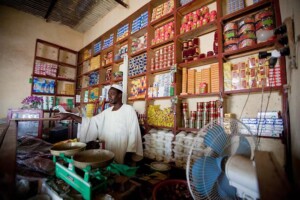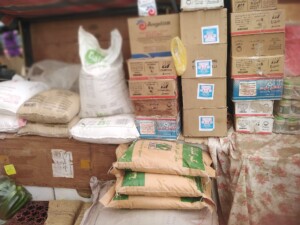Sudan again unifies its currency exchange rate
The Central Bank of Sudan announced the unification of the Sudanese Pound exchange rate to allow for the determination of currency exchange rates without interference from the Central Bank. Foreign exchange dealers on the parallel market reported that the Dollar exchange rate recorded SDG560 yesterday.
 Sudanese Pounds and US Dollars (RD file photo)
Sudanese Pounds and US Dollars (RD file photo)
The Central Bank of Sudan announced the unification of the Sudanese Pound exchange rate to allow for the determination of currency exchange rates without interference from the Central Bank. Foreign exchange dealers on the parallel market reported that the Dollar exchange rate recorded SDG560 yesterday.
The Central Bank of Sudan (CBoS) announced the unification of the Sudanese Pound (SDG) exchange rate, which means that the exchange rate for banks and exchange companies will be adjusted to the parallel market rate.
The unification of the Sudanese Pound allows the buying and selling rates of free currencies to be determined and announced without interference from the Central Bank.
The decision of the CBoS is part of implementing the directives of the Economic Emergency Committee headed by Sovereignty Council Vice-Chairman and Rapid Support Forces Commander Mohamed Hamdan ‘Hemeti’ Dagalo.
Exchange rate changes over time
Yesterday, one US Dollar traded for SDG560 on the parallel market whilst the official CBoS exchange rate was roughly SDG447 for 1USD.
In February 2018, the official exchange rate set by the CBoS was 1USD for SDG18 whereas the parallel market rate was roughly SDG40. These numbers are indicative of the severe inflation Sudan has witnessed in recent years.
'Last year, the government also unified the Sudanese Pound exchange rate in an attempt to halt the ongoing inflation in Sudan'
Last year, the government also unified the Sudanese Pound exchange rate in an attempt to halt the ongoing inflation in Sudan. At that time, the official exchange rate for 1USD was adjusted from SDG55 to the parallel market rate of SDG375.
At that time, economics Professor Hasan Bashir and Professor Esam El Zein warned told Radio Dabanga that the currency adjustment would stabilise the exchange rate and encourage grants, loans, and emergency subsidies but also warned about increased poverty and inflation.
Since the October 25 military coup, the parallel market has started to become more powerful again and divert from the official exchange rate.
Economic conditions in Sudan have been harsh and many basic daily needs have become unaffordable for people as the Sudanese Pound plunges further and further.
Expert opinion
In an interview on Radio Dabanga’s Sudan Today programme, economic and political analyst Hafiz Ismail said that the stability of the exchange rate depended on the political stability of the country.
Ismail said that the decisions of the Economic Emergency Committee headed by Hemeti are a repetition of failed experiments. He pointed at the arrest of currency traders and the formation of a special court for those whom Hemeti’s committee described as ‘economic saboteurs’, among other things.
Ismail explained that such ‘security solutions’, including arrests, cannot address economic problems.
He explained that the current economic crisis is a reflection of the political crisis caused by the military coup, in which Hemeti played a prominent role, and which led to the severing of the relationship with the international community and the suspension of the debt relief process and donor commitments.
Ismail warned of the catastrophic effects of ‘security solutions' and warned of the continued inflation of the Sudanese Pound if Hemeti’s current policies continue.
'The treatment of the economic crisis depends on whether we accurately address the political crisis and return to the democratic path' – Hafiz Ismail
“The treatment of the economic crisis depends on whether we accurately address the political crisis and return to the democratic path”, he said.











 and then
and then